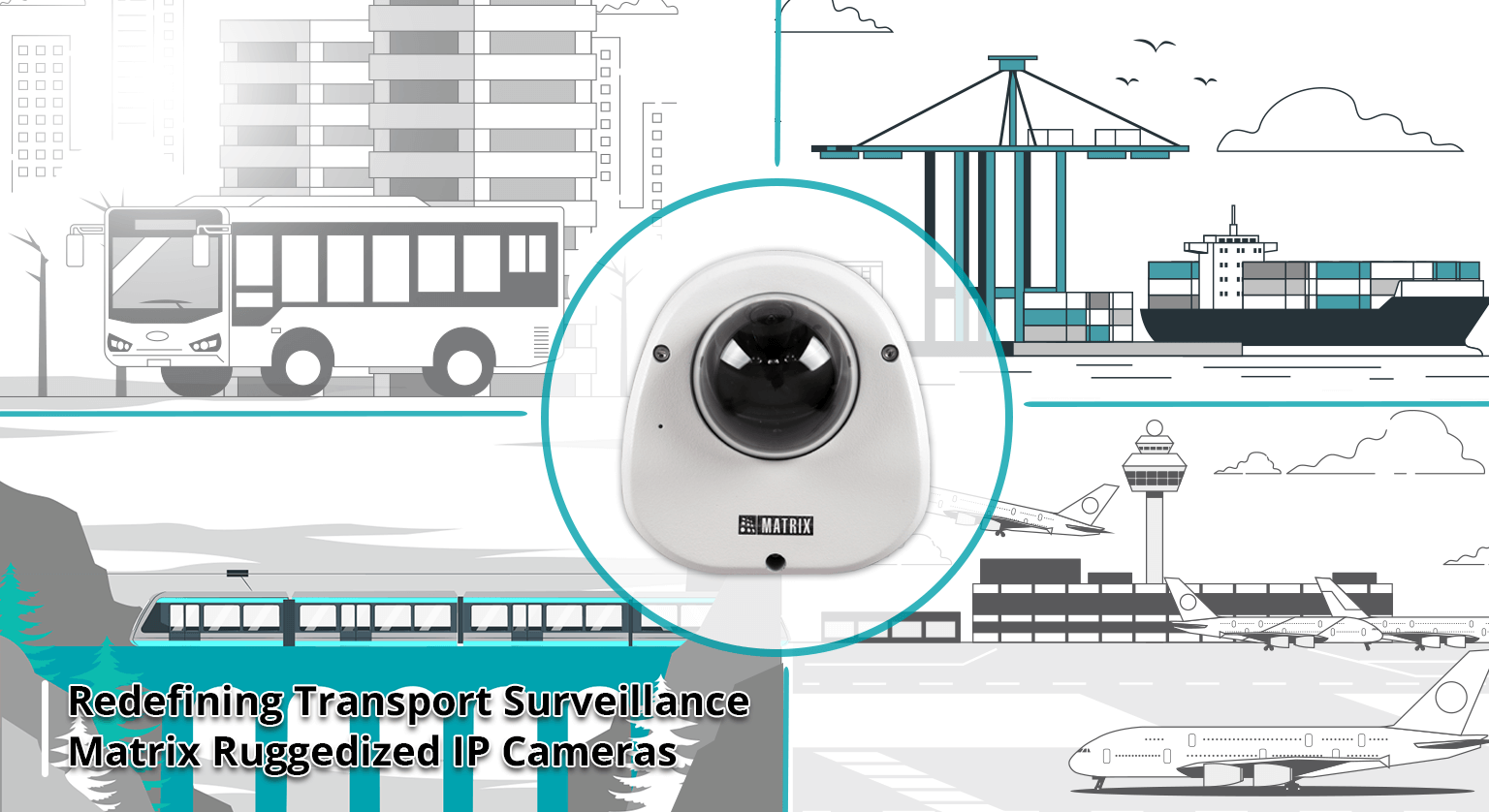
![]()
CCTV cameras used in the transport and logistics sector must withstand conditions like vibrations, shocks, and environmental elements. Ruggedized IP Cameras are the preferred choice for mobile surveillance.
In the case of public transport like buses and trains, the safety and security of passengers during their journey are of utmost concern. To meet this imperative, a resilient video surveillance system is indispensable, facilitating the monitoring of passengers during boarding and disembarkation.
Furthermore, when vehicles are traversing long distances, they may encounter areas with limited or no network coverage. In these situations, it is crucial to have a robust video surveillance infrastructure that ensures redundancy, robustness, and stability.
Ruggedized IP Cameras are designed to meet the requirements of the transport industry. This post will discuss all you need to know about IP Surveillance Cameras for Transportation Industry.
What are the Video Surveillance Challenges Faced by the Transportation Industry?
The dynamic nature of transportation poses video surveillance challenges that are unique to the industry. Some of the challenges include:
- Harsh Environments: Transportation equipment whether on road rail or sea, must withstand harsh environmental conditions like extreme temperatures, vibrations, shocks, and exposure to dust, and moisture.
- 24×7 Monitoring: Trains and transportation systems operate all day long, making continuous monitoring necessary. The surveillance systems installed should be able to capture and store video data without interruptions.
- Remote Locations: Often transportation routes pass through remote areas with limited or no network coverage, making transmitting and recording video feeds difficult.
- Cyber Security Concerns: With IP surveillance cameras becoming interconnected and reliant on Internet access, they have become vulnerable to cyber attacks. Ensuring the security of video data and the surveillance network is crucial.
- Privacy and Legal Compliance: The transportation industry must be mindful of privacy concerns and legal requirements while ensuring passenger safety. Striking a balance between passenger safety and privacy rights can be challenging.
- Redundancy and Reliability: IP Surveillance Cameras for trains should be designed for continuous surveillance and data recording, redundancy and reliability are essential. This includes backup power supplies, dual connectivity options, and ruggedized equipment.
What are the Advantages of Ruggedized IP Cameras for Trains?
Ruggedized IP Cameras are ideal for varied application scenarios like railways, buses, commercial fleets, shipping ports, and subway systems. One thing common about all these places is the harsh conditions like vibrations, shocks and extreme temperature fluctuations.
CCTV Cameras deployed on vehicles are designed to meet the transportation industry requirements which include:
- Durability: Rugged IP Cameras can withstand harsh conditions like extreme temperature, humidity and water or rain splashes without compromising on performance.
- Vibrations and Shock Resistance: Trains can experience significant shocks and vibrations while in motion. The cameras a specifically designed to capture clear footage even in such conditions.
- Dust and Debris Protection: Ruggedized IP Cameras for Trains have sealed enclosures that protect the internal components from dust, dirt and debris that could harm the internal components and the image quality.
- Remote Monitoring: The IP (Internet Protocol) capabilities allow remote monitoring and access to captured footage enabling real-time surveillance, maintenance, and emergency response.
- Compliance with Industry Standards: Ruggedized IP Cameras for trains are often designed to meet specific industry standards and regulations, ensuring that they comply with safety and performance requirements.
Why do all Ruggedized IP Cameras need to Comply with EN 50155 Standard?
We’ve previously explored the suitability of IP surveillance cameras for railway use. Now, let’s delve into a crucial industry standard that governs the acquisition of electronic equipment for railway applications. EN 50155 is a European standard specifically designed for electronic equipment used in the railway sector to ensure that the devices are safe, reliable, and able to operate in extreme conditions.
The EN 50155 standard is applicable to all electronic equipment installed in rolling stock, including trains, trams, and other rail vehicles. The standard defines the environmental conditions the equipment should withstand, like temperature, ranges, humidity levels, vibration shock, etc.
EN 50155 outlines safety standards and performance criteria to safeguard passengers, workers, and the entire railway system and covers additional aspects. These include Electro Magnetic Compatibility (EMC), electrical requirements, fire and smoke regulations, vibration, and shock resistance, temperature range, documentation and testing, as well as marking and labeling, maintenance, and serviceability.
Why are Vibration and Shock Proof Ruggedized IP Cameras Important for the Transport Sector?
Have you ever experienced how a slight movement of the hands, or shivering while capturing a video could ruin the entire video footage?
Now imagine a situation where the surveillance camera has been installed in the bus, train, or any of the rolling stock where there is constant motion and vibrations. CCTV cameras for mobile vehicles use various shock-resistant housing and image stabilization technologies to negate the impact of vibrations and shocks while capturing images.
Modern cameras use components like CMOS sensors, which are resilient to shocks compared to their earlier counterparts. These components are less prone to damage or misalignment caused by physical shocks.
Cameras are equipped with anti-vandal features like impact-resistant domes or covers to protect the camera lens and internal components. From tampering and physical abuse.
To Sum up, the Transport Industry has a unique requirement for rugged cameras that can withstand harsh conditions like temperature, humidity, vibrations, and shocks. Additionally, the cameras should have the capability to capture footage on the edge in case of network failure. This empowers reliable 24×7 Video Surveillance.
Ruggedized IP Cameras from Matrix are an Ideal fit for the rail and transportation industry they are compliant with various standards NEMA 4X, EN 50155, IK 10, IP 67, and many more underscoring their inherent abilities to handle various environmental elements.
